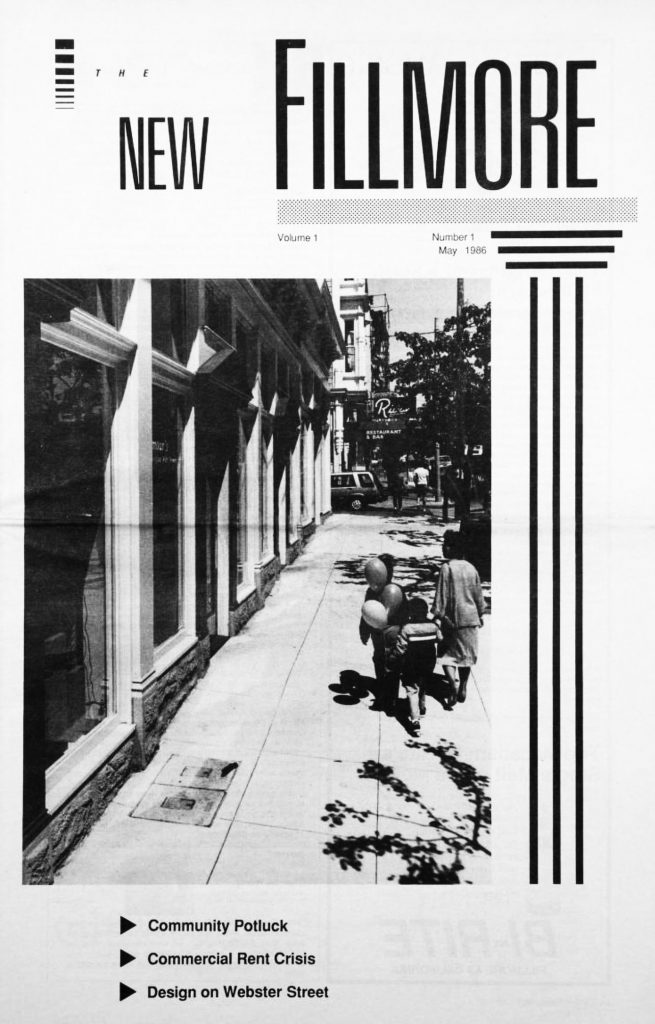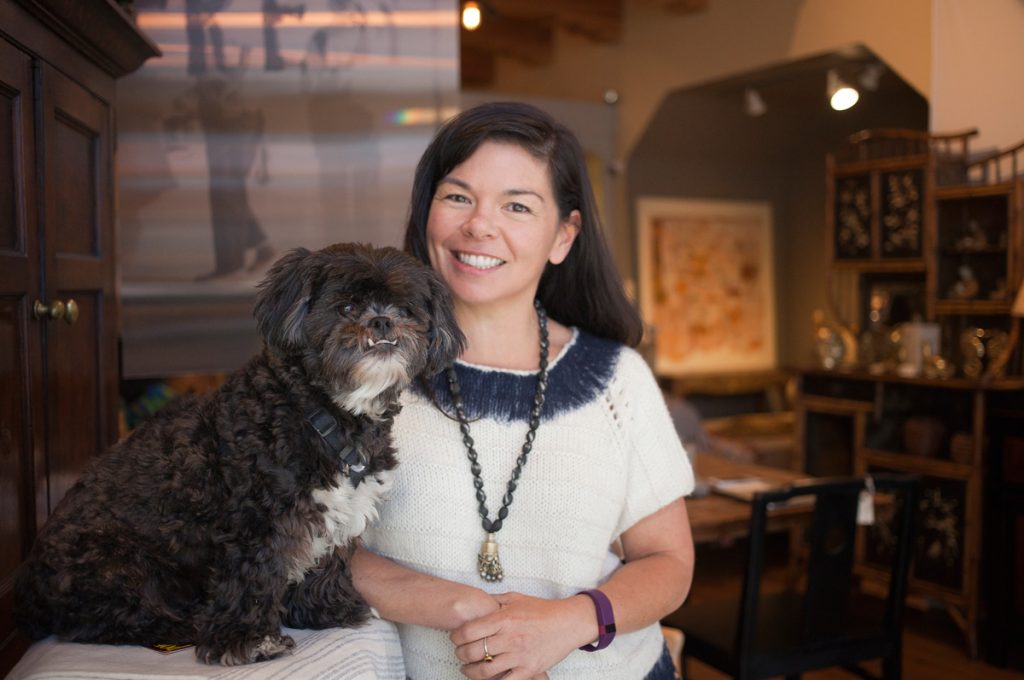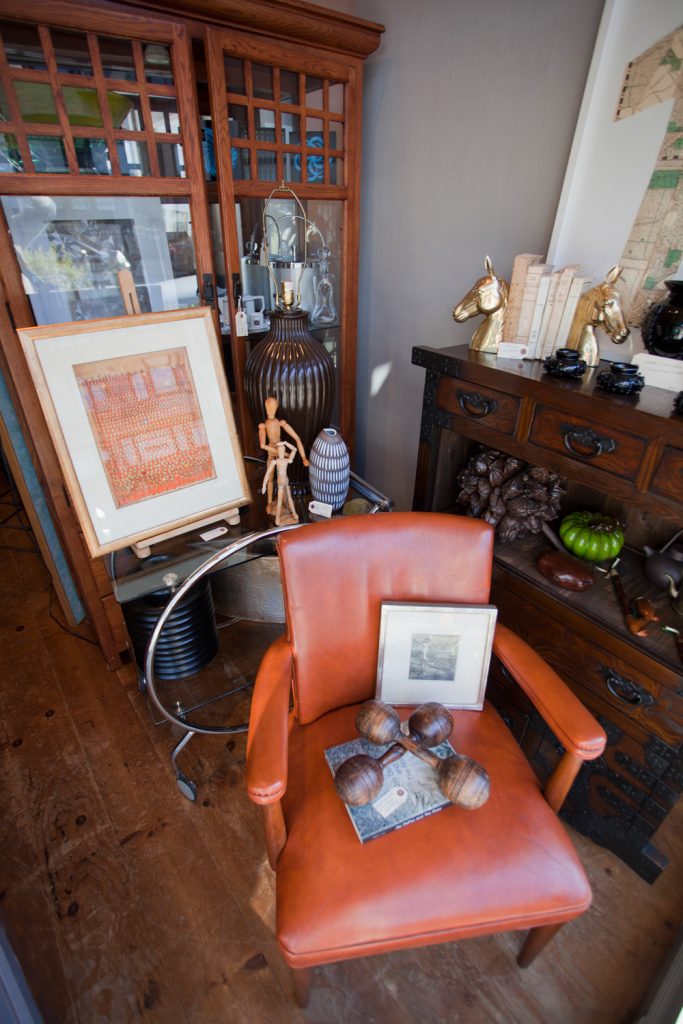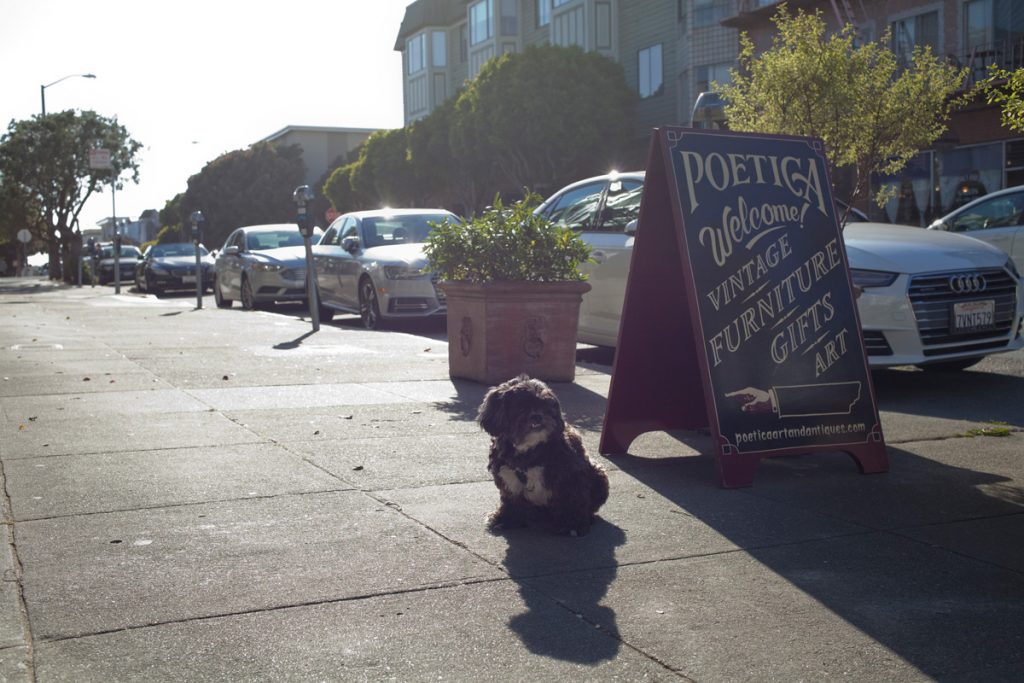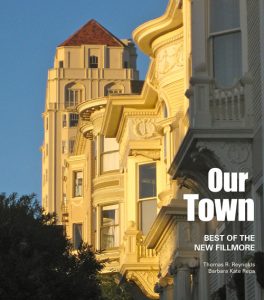By BARBARA KATE REPA
Traci Teraoka, the personable proprietor of Poetica Art & Antiques at 3461 Sacramento Street, believes in synchronicity. Growing up, her family moved every few years to accommodate her dad’s career in air freight. But after she landed in San Francisco two dozen years ago, she noticed roots growing out of the container of a lemon tree she’d bought.
“I took that as a metaphor that it was time for me to put down real roots here,” she says. And she did — sending her son Alexander to nearby Town School and Drew School, establishing a small business and living upstairs above her eclectic shop, taking a leadership role in neighborhood organizations.
“I really let myself be here on Sacramento Street more than any other place in my life,” she says. She even planted the lemon tree in her back yard — in the ground.
But now she’s being uprooted. Teraoka and her business partner had an agreement that when Alexander was a year out of high school, she would buy out her partner, or they would sell the building.
And now the time has come.
“It’s unfortunate what it costs right now in San Francisco,” she says. “I like the diversity of businesses and neighbors and schools and medical help here — the many factors that make up a community. But I’m priced out.”
The changes in the city are undeniable.
“I identified with a San Francisco that’s down to earth and creative,” she says. “It’s a place where I see people I know while I’m taking a walk with my dog, or meet up with them in the grocery store.”
Now she’s preparing to leave. Her building is for sale, and she has already moved many of her treasures to Chelsea Antiques in Petaluma, a collective of about 20 independent antique dealers. She has been pitching in there a few days a month — and says her biggest delight so far comes when browsers in Petaluma recognize her from the Sacramento Street shop.
That’s no wonder. Teraoka has a way of fostering a sense of community.
In the nearly eight years she’s owned and operated Poetica on Sacramento Street, she has helped transform the street into a more neighborly place. She’s been active on the police advisory board, the Neighborhood Emergency Response Team and became a board member of the Presidio Heights Association of Neighbors, as well as president of the Sacramento Street Merchants Association. While presiding over the merchants group — which includes retailers spanning about seven blocks from Sue Fisher King to the Ribbonerie — she even coaxed some of the most reticent to participate in the street’s annual sidewalk sale during Small Business Week.
“I didn’t like the idea of sole proprietors being alone on the street,” Teraoka says. So she established a phone-text-email directory that allowed merchants to relay crimes and other news to one another quickly. “I was idealistic,” she says. “I thought I could make big changes.”
Teraoka’s a charmer, not a fighter. On a recent evening near closing time, she and her hound Huckleberry — a Shihtzu Poodle mix with a decided underbite — welcomed all comers. Though she’s in her last few weeks in the store, it’s clear Teraoka has not yet pulled up her neighborhood roots.
• A customer comes by to pick up a gift for a friend in L.A. — a three-foot-tall Giacometti-like thin statue that Teraoka lovingly enfolds in bubble wrap secured by neon pink rubber bands.
• A homeless man knocks at the door in search of conversation — and possibly some change. Teraoka says she’s tried to get help for him from some community services, without much success. “Is there any chance you won’t be leaving?” he pleads.
• A dad stops out front with his 18-month-old daughter, who’s pushing a miniature stroller with a doll in it, though she admits the doll has no name. “She really likes the stroller better than the doll — and we have to come by and say hello to Huckleberry every day,” her dad explains.
“Not everyone has to buy something to contribute to how a store feels and is perceived,” Teraoka says.
Her store, Poetica, still feels very much like a going concern. Framed limited edition black and white portraits hang on the walls looking out at the furnishings and collections that still crowd the shop: Steiff vintage stuffed animals made of mohair with glass eyes, a vintage chrome desk organizer, a delicate French side table.
“I’m not looking to recreate someone’s old attic,” she says. “I want things that add value to an environment.”
Teraoka’s penchant for collecting and creating a comforting environment was honed in her earlier work with Maitri, a residential AIDS hospice program in San Francisco, where she was charged with designing the new quarters after a move. “That was such a beautiful challenge,” she says. “How do you create home and community for those who are chronically ill, for those facing challenging times?” In addition to fashioning soothing environs, Teraoka created a newsletter and distributed free journals in which hospice residents could record their thoughts.
“One of the great lessons I learned at Maitri is that beauty, comfort and meaning are qualities to feeling at peace. Art and furniture is like a medium to me,” she says, reaching out to pat one of the furry Steiff animals that remain from the menagerie of 53 she took on consignment.
“Oh — and another thing I love about this store: It’s cool that people have favorite things they see in the window,” Teraoka says, slipping back into present tense. “One of the greatest compliments I get is: ‘I like looking in the window.’ I think they enjoy the beauty and the whimsy.”
Teraoka had prepared herself to move out quickly, trusting that synchronicity would once again help point the way to her next incarnation. But it’s taking a bit of time to find a fitting buyer for her unique live-work space on Sacramento Street. She’s currently thinking she’ll be there until mid-May.
“I just don’t want people to think I disappeared off the face of the earth because of Amazon,” she says. “My sales were growing steadily. I want people to know: We created something viable and real.”
RELATED: “1,000 Monks” helped create a community
Filed under: Locals, Retail Report



